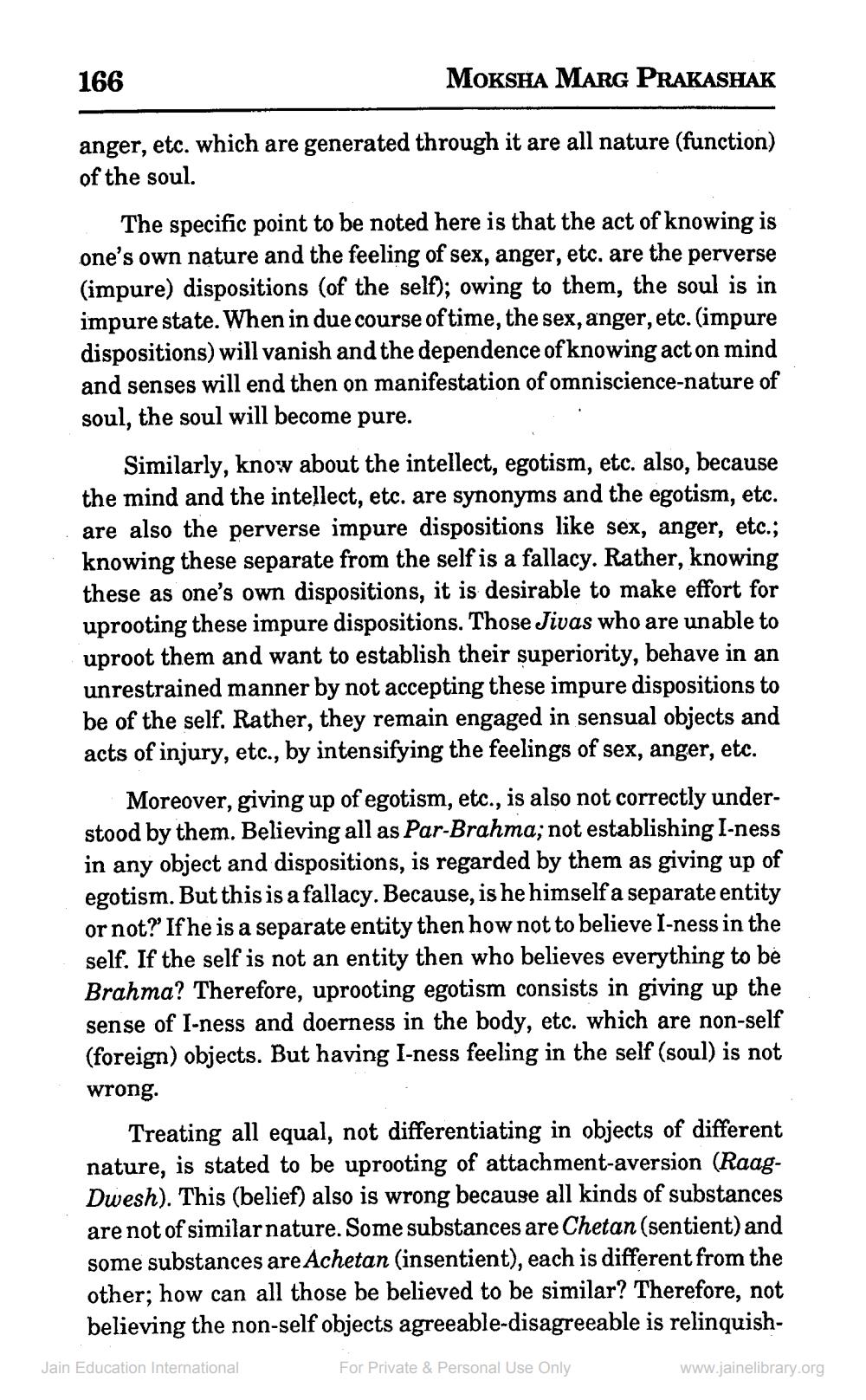________________
166
MOKSHA MARG PRAKASHAK
anger, etc. which are generated through it are all nature (function) of the soul.
The specific point to be noted here is that the act of knowing is one's own nature and the feeling of sex, anger, etc. are the perverse (impure) dispositions (of the self); owing to them, the soul is in impure state. When in due course of time, the sex, anger, etc. (impure dispositions) will vanish and the dependence of knowing act on mind and senses will end then on manifestation of omniscience-nature of soul, the soul will become pure.
Similarly, know about the intellect, egotism, etc. also, because the mind and the intellect, etc. are synonyms and the egotism, etc. are also the perverse impure dispositions like sex, anger, etc.; knowing these separate from the self is a fallacy. Rather, knowing these as one's own dispositions, it is desirable to make effort for uprooting these impure dispositions. Those Jivas who are unable to uproot them and want to establish their superiority, behave in an unrestrained manner by not accepting these impure dispositions to be of the self. Rather, they remain engaged in sensual objects and acts of injury, etc., by intensifying the feelings of sex, anger, etc.
Moreover, giving up of egotism, etc., is also not correctly understood by them. Believing all as Par-Brahma; not establishing I-ness in any object and dispositions, is regarded by them as giving up of egotism. But this is a fallacy. Because, is he himself a separate entity or not?' If he is a separate entity then how not to believe I-ness in the self. If the self is not an entity then who believes everything to be Brahma? Therefore, uprooting egotism consists in giving up the sense of I-ness and doerness in the body, etc. which are non-self (foreign) objects. But having I-ness feeling in the self (soul) is not wrong.
Treating all equal, not differentiating in objects of different nature, is stated to be uprooting of attachment-aversion (RaagDwesh). This (belief) also is wrong because all kinds of substances are not of similar nature. Some substances are Chetan (sentient) and some substances are Achetan (insentient), each is different from the other; how can all those be believed to be similar? Therefore, not believing the non-self objects agreeable-disagreeable is relinquish
For Private & Personal Use Only
Jain Education International
www.jainelibrary.org




